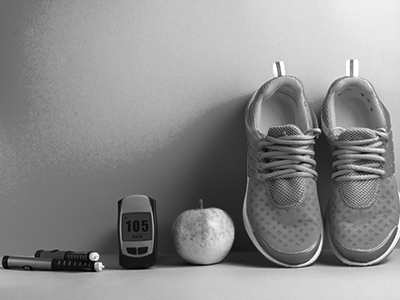Exercise Physiology For Diabetes

Diabetes
is the name given to a group of conditions through which the body is unable to
maintain healthy levels of glucose (sugar) in the blood. Glucose can build up
in the blood and cause a range of other health problems that can affect the
whole body. Many people with diabetes can go for long periods of time without
experiencing any actual symptoms of the disease.
The two main types of diabetes are Type 1 and Type 2 diabetes. Type 1 is characterised by insulin deficiency and is for the most part detected at an early age, with genetics playing a large part in the diagnosis of this type. Type 1 diabetes is controlled with regular insulin injections.
Type 2 diabetes is characterised by fluctuating levels of insulin resistance and is often seen as a milder form of diabetes than type 1. Type 2 diabetes is controlled with monitoring of fasting blood glucose levels and other risk factors that can occur as a result of this condition.
How Can Exercise Help Diabetes?
Exercise is fast becoming a widely used treatment for diabetes, as it has not only been shown to help with management of glucose levels, but it decreases the risk of other risk factors associated with this condition, including body fat levels, risk of heart disease and risk of kidney failure. Exercise programs supervised by Accredited Exercise Physiologists are an extremely effective method of treatment for the symptoms of diabetes, regardless of what type you may have.
The
type of exercise you do is an extremely important factor to consider when
programming for a patient with diabetes. Research shows that programs with a
combination of aerobic and resistance (weights) training are the most effective
exercise programs for diabetic patients. Aerobic fitness components target
heart health and lung functioning, while resistance training focuses on the maintenance
of muscle mass and increasing both bone and muscle strength.
Aerobic
exercise should be undertaken at least 3 times each week at a moderate to
vigorous intensity, while resistance training needs to be completed a minimum
of twice per week, again at a moderate to vigorous intensity. Improvements in
fitness and strength often correlate with an improvement in health markers,
including blood glucose levels and weight.
Accredited Exercise Physiologists are highly effective at devising exercise programs for patients with diabetes. At central Performance all of our exercise physiologists hold university degrees at either Bachelor or Masters levels. Their university training plus extensive experience allows them to develop effective and targeted exercise programs for diabetes patients by taking into account their medical history, personal health and fitness goals, exercise ability and any other relevant injuries or health issues. Professionally designed programs that are tailored for each individual client, plus expert supervision and home exercise prescription, leads to better and faster outcomes plus happier and healthier clients.


